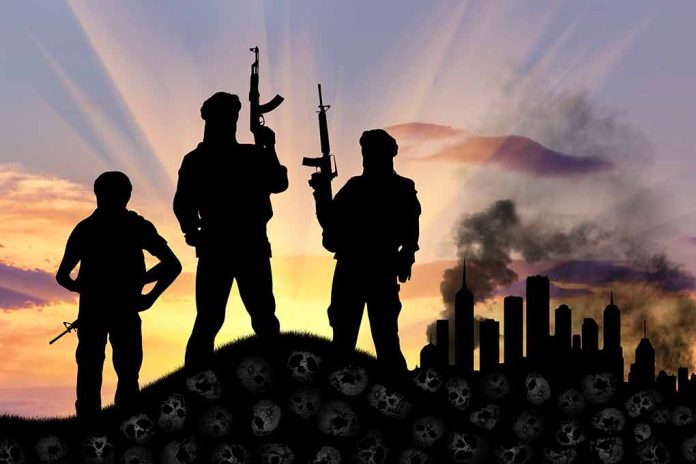
The Israel-Hamas conflict intensifies during Hanukkah, raising questions about the fragile road to peace amid political transitions in the U.S.
At a Glance
- Hamas and Israel blame each other for not achieving a ceasefire.
- Mediation efforts by Qatar and Egypt show some flexibility.
- Israeli Prime Minister Netanyahu accuses Hamas of breaking agreed terms.
- The Biden administration faces criticism for its Middle East policies.
Conflict amidst Celebration
The Israel-Hamas conflict persists as ceasefire talks fail to materialize during Hanukkah, intensifying the tension between celebration and conflict. Both sides, entrenched in disagreement, blame each other for stalling the ceasefire despite apparent progress reported in discussions. Hamas accuses Israel of introducing new demands concerning withdrawal, existing prisoners, and displaced persons’ return. Israel, however, holds Hamas accountable for retracting previously established understandings.
Benjamin Netanyahu, Israel’s Prime Minister, stated that “The Hamas terrorist organization continues to lie, is reneging on understandings that have already been reached, and is continuing to create difficulties in the negotiations.”
Talks, mediated by regional influencers like Qatar and Egypt, have highlighted some flexibility from both parties, although significant hurdles remain.
Political Shifts in the USA
The White House’s focus on the Middle East shifts with President-elect Donald Trump’s return to office, signaling potential changes in support strategies and policy direction. Trump, known for his pro-Israel stance, promised tougher measures against Hamas and greater alignment with Israeli interests. This comes as the Biden administration’s strategies, including aid to Gaza, face scrutiny, with some claiming these measures may have inadvertently emboldened Hamas.
Israeli Defense Minister Israel Katz emphasized Israel’s plans for continued security control, stating, “Israel would retain security control of the enclave, including with buffer zones and controlling posts.” For Israel, a priority remains dismantling Hamas’ influence and ensuring hostages’ return.
Humanitarian Concerns and Future Prospects
The humanitarian situation remains stark, with around 60 hostages under Hamas’ control and fresh accusations of hostage abuse emerging. The crisis underscores the urgent need for a negotiated settlement. Meanwhile, the continued military engagements and structural damage inflicted upon Gaza’s already strained infrastructure elevate civilian suffering, posing serious questions about the conflict’s humanitarian dimensions.
Amid these challenges, Israel signals readiness for negotiations focused on bringing all hostages home, showing willingness to engage under terms favorable to national security and stability. As the situation evolves, regional peace hangs in delicate balance, resting on the actors’ ability to navigate political soil pragmatically and humanely.












